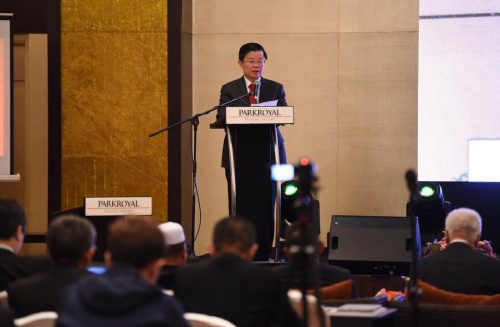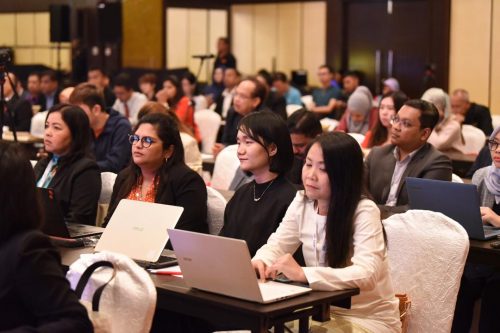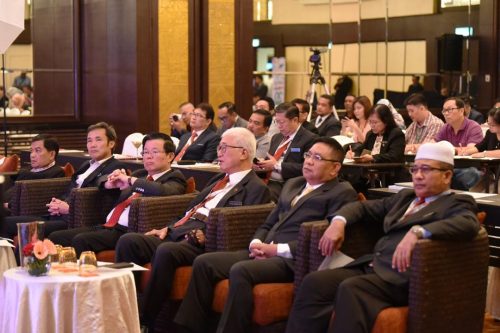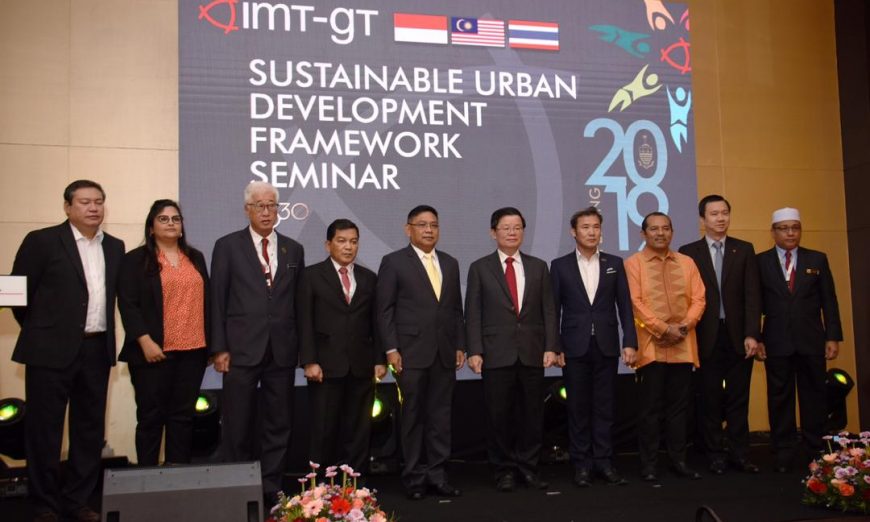THE Penang Green Agenda (PGA) blueprint is scheduled to complete by the end of this year (2019) and to be launched by the first quarter of next year (2020).
Penang Green Council (PGC) general manager Josephine Tan said the council was moving towards the third and final stage of completing the blueprint.
“We are currently at Stage Two which is developing the road maps and setting up working groups.
“Seven working groups have been set up so far. We are in the process of setting up the last three working groups.
“The final three working groups are Governance and Institution, Water and Sanitation, and Biodiversity and Natural Ecosystem,” she said when met at the IMT-GT Sustainable Urban Development Framework Seminar at Parkroyal Penang Resort in Batu Ferringhi today.
The Indonesia-Malaysia-Thailand Growth Triangle (IMT-GT) is a subregional cooperation initiative formed in 1993 by the governments of Indonesia, Malaysia and Thailand to accelerate economic and social transformation in less developed states and provinces.
According to the PGC website, PGC together with the State Economic Planning Unit and Penang Institute mooted the PGA in response to the issues pertaining to global climate change and the evolving paradigm of sustainable development.
The PGA will help to formulate strategies which helps to meet future environmental challenges in Penang while incorporating the United Nations Sustainable Development Goals (UNSDGs).
PGA project manager Ng Shin Wei said the PGA would also help to adapt and build resilient community in Penang by 2030.
“There are about 20 members in each working group and they comprise of representatives from the state government, local governments, non-governmental organisations, academia, businesses and others.
Ng said the First Stage had started in 2017, where feedback from the public was gathered.
“We asked the public about their concerns and based on the outcome of the feedback, we moved towards Stage Two where we focused on 10 key areas,” she said.
The other seven working groups are Land Use and Planning, Disaster Risk Reduction and Management, Green Economy, Agriculture, Marine and Coastal Management, Green Building and Township, and Mobility and Connectivity.
Chief Minister Chow Kon Yeow said the PGA blueprint was important for Penang to move forward.
“We are in the process of preparing the PGA blueprint.
“This is the best platform for you to share what you have been doing,” Chow told the Penang Green Council during his opening speech at the seminar.

Chow said this year’s IMT-GT marked an important milestone for Penang’s growth and pathways to become a green state.
“What does it take to be called a green city?
“It takes more than just economic growth. It takes an area that is resilient and inclusive, able to manage its natural resources well, and promotes low carbon growth to remain competitive but at the same time ensuring the livelihood of its citizens.
“The Sustainable Urban Development Framework (SUDF) is the scale-up expansion of the Green Cities Initiatives in IMT-GT.
“One of the initiatives – the Green City Action Plan (GCAP) – was firstly implemented in Melaka, Songkhla, Hatyai, Medan and Batam.
“We have witnessed how Melaka has made great strides towards building a sustainable, green city.
“Melaka’s success is definitely a living proof of meticulous planning and comprehensive approach.
“With the technical and financial aid provided by the Asian Development Bank (ADB), Melaka being the first city where GCAP was implemented has flourished into a sustainable green urban city.
“I hope that Penang will be the next city where the ADB will assist with technical support and financial aid,” Chow said.

Chow said SUDF envisioned to implement the GCAP in at least another 40 cities within Indonesia, Malaysia and Thailand.
“The SUDF prioritises in improving transportation and connectivity, promoting the use of renewable energy, protecting biodiversity, proper management of solid waste and ensuring clean water and sanitisation,” he said.

Seberang Perai Municipal Council (MPSP) president Datuk Rozali Mohamud said the MPSP aimed at reducing 50% of carbon emission by 2022, from eight tonnes of carbon dioxide equivalents to four tonnes of carbon dioxide equivalents.
“We also hope to be a carbon neutral city by 2030 and a zero-carbon city by 2050.
“This event is timely. We hope to get technical assistance and hopefully funding to achieve our goals,” he said.
Also present were state Welfare, Caring Society and Environment Committee chairman Phee Boon Poh, Penang Island City Council mayor Datuk Yew Tung Seang, Governor of Pattani Kraison Visitvong, Jambi regional secretary H. Budidaya and the Centre for IMT-GT director Firdaus Dahlan.
Story by Christopher Tan
Pix by Darwina Mohd Daud
Video by Alvie Cheng

